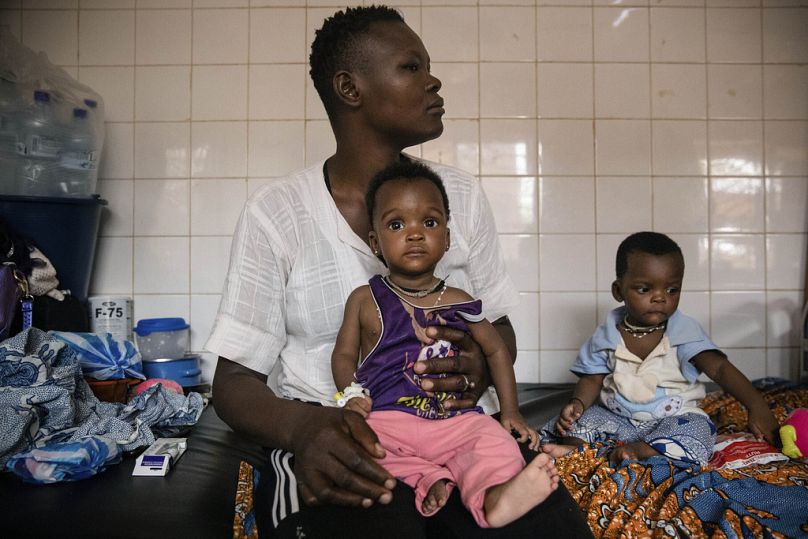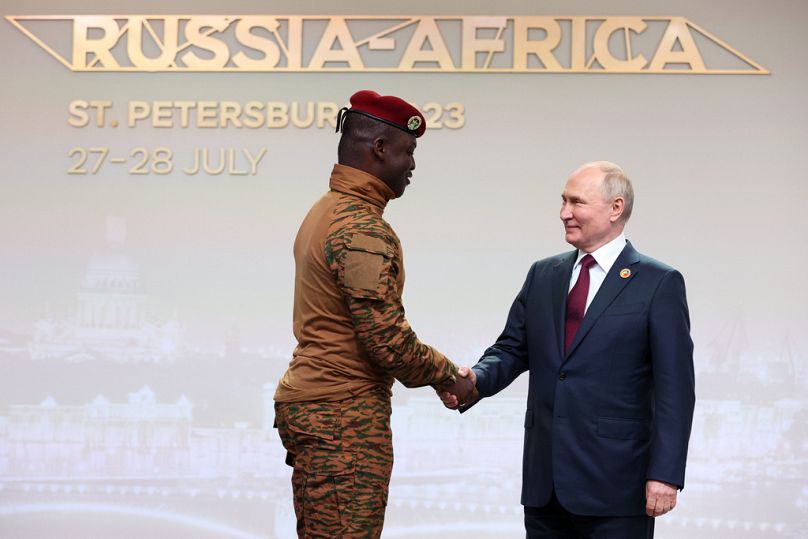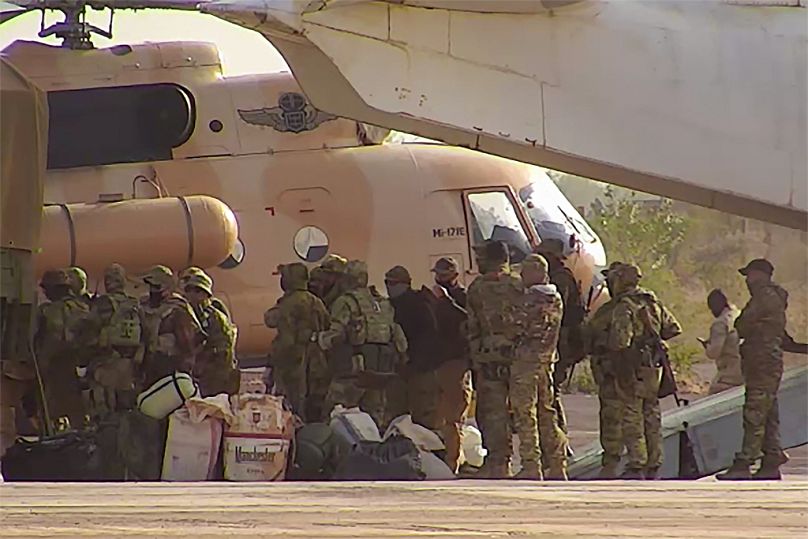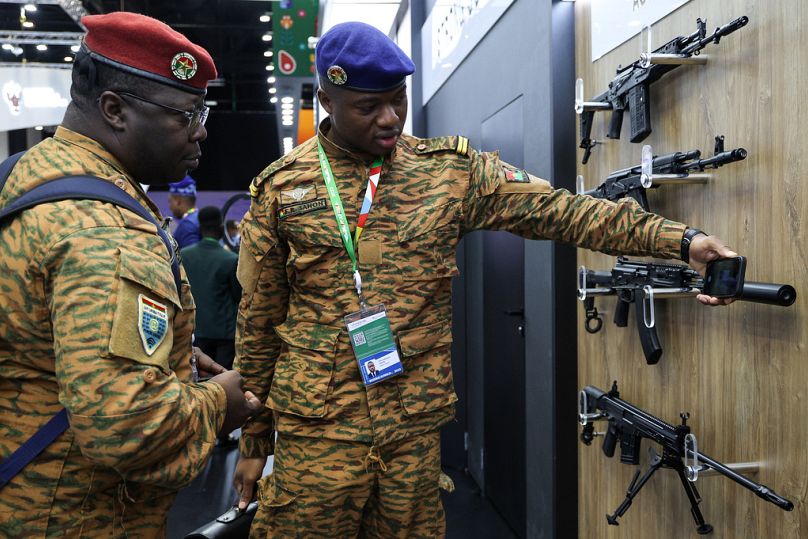Irrespective of the outcome of the Ukraine war, Russia-West relations will remain adversarial for the foreseeable future, and Moscow will seek any opportunity to seek new partnerships and push back against the West, Vuk Vuksanović writes.
There have been a lot of talks about Russia’s growing influence in Africa. However, for Moscow, the continent is not a foreign policy priority but an instrument for gaining geopolitical leverage in other regions and with the West.
 ADVERTISEMENT
ADVERTISEMENT
 ADVERTISEMENT
ADVERTISEMENT
Russia has exploited a history of anti-Western sentiment in Africa that dates back to European colonialism. In francophone Africa, France is a frequent target of this animosity.
Simultaneously, the popularity of Russia has grown in these countries, particularly since the start of the Ukraine war.
In recent years, Russia has come to view Africa, a continent with 54 UN member states and the second largest in demographic terms, as the perfect location to earn credentials as a global power.
Food supply as a tool for leverage
In the Ukraine war, many African nations have pursued a policy of non-alignment rather than placing themselves in the Western or Russian camps.
Instead, the prevailing mood appears to be a desire for Africa to assert itself internationally, among other things, by avoiding becoming a mere pawn in the global great power competition.
In that context, South Africa conducted naval exercise Mosi II ("Smoke" in Tswana) with Russia and China in February 2023, a repetition of the same drill from 2019.
At the UN, many African countries condemn Russian actions in Ukraine. However, they are unwilling to introduce sanctions against Russia, and most are open to doing business with Moscow.
Russia will use its African ties to gain a foothold on the continent and, potentially, as leverage with the West. For instance, it has become a reliable food supplier to Africa.
The UN- and Turkey-brokered agreement between Russia and Ukraine on exporting Ukrainian wheat to the global markets, from which Moscow pulled back in July is a case in point.
Meanwhile, President Vladimir Putin told delegates at a July 2023 Russia-Africa summit in St Petersburg that Russia would supply grain to six African countries for free.
Using food supply as leverage appears to have worked well for Moscow. To ease the ongoing food crisis, in November 2022, the UN got the Netherlands to unblock 20,000 tons of fertiliser stuck at the Dutch port of Rotterdam because of the EU sanctions.
Foothold in the arc of instability
A new component of Russian strategy is its attempts to unnerve the West by inserting itself close to the "West’s underbelly" and diverting attention away from Ukraine, particularly since Europe will become increasingly vulnerable to migration from and security instability in Africa.
By inserting itself in the continent, Russia can exploit Europe’s vulnerability and, if necessary, instigate controlled crises through which it can gain leverage and bargaining chips with Europe and the wider West.
On that front, Russia has successfully inserted itself into regional security matters in Africa. In Sahel countries, Russia has become a preferred security provider after the coups in Mali (2020 and 2021) and Burkina Faso (2022), and most recently in Niger (2023) — unlike traditional security providers such as France and the EU, it has no governance conditionalities.
The Russian policy towards Libya plays out in a similar context. Moscow is aware of former US President Richard Nixon’s observation that Libya occupies a "key strategic position" on the southern flank of NATO.
Russia projects power in the eastern Mediterranean through its presence in Syria via the Khmeimim Air Base in Latakia and a naval base in Tartus, thus complicating NATO operations in the area.
As Hanna Notte of the Vienna Center for Disarmament and Non-Proliferation explained in an interview, Russia hopes it can now establish a foothold in the south Mediterranean via Libya and so extend "the arc of deterrence" from the Russian Federation to the southern Mediterranean.
Notte further noted that Moscow is trying to gain a foothold in the arc of instability in the Sahel-Sahara region — from Mali to Sudan and from Libya to the Central African Republic — near the Eastern Mediterranean zone.
As such, it has military assets in Syria and a close relationship, including arms procurement, with Algeria and Egypt.
Then there is also Wagner
Russia can also position itself in the energy market in the Mediterranean, where the transit of gas from Algeria and Libya to European buyers takes place and where the enormous gas deposits in the maritime areas off Egypt, Israel and Cyprus need to be developed.
While it would not be an easy feat, there is always the question of whether Russia will try to transfer its anti-access/area denial weapons — like the S-400 surface-to-air missiles, tactical ballistic missiles, cruise missiles, anti-ship missiles and electronic warfare equipment — from Syria to Libya.
So far, Russian military activities are undertaken through private military companies, and it is uncertain whether Russia will establish a formal military presence in the country.
Still, if one becomes a player in North Africa capable of poking the West, one becomes a player with which NATO has to reckon.
In October 2022, Russia and Algeria conducted naval exercises in the Mediterranean ahead of joint anti-terrorist exercises dubbed "Desert Shield 2022" planned for November 2022.
A perfect instrument for a Russian security presence on the continent is the Wagner Group, formally a private military security company tied to the Kremlin.
The group has trained and penetrated local military structures in Mali, Sudan, the CAR, Mozambique and Libya. In April 2022, Cameroon signed an agreement with Russia to boost military ties, potentially opening new doors for the Russian government and the Wagner Group.
However, the Wagner Group is not always successful — in 2019, its members were killed in ambushes by local so-called Islamic State affiliates in Mozambique, resulting in pushback from the country.
Russia is there to stay
Russia also aims to access the Indian Ocean via East Africa and the Horn of Africa. This would allow Moscow to increase its geopolitical clout, as it would be able to interact more effectively with the Middle East and the Persian Gulf countries.
On top of that, the rise of India and China and their need to tap into foreign markets and access energy and other resources will make the Indian Ocean a unique system of global trade and geopolitical competition. This gives Russia another motive to establish a presence in this region.
Russia has already courted Sudan with the idea of opening a port on the country’s Red Sea coast that would allow Moscow to project its naval power further into the Indian Ocean.
Initially, the Khartoum government turned down these overtures by Moscow. It feared the potential US reaction, while Egypt, Sudan’s powerful neighbour, had misgivings about the presence of foreign military installations near its borders.
However, in February 2023, reports emerged that Sudan and Russia reached a new deal on the Red Sea base dependent on the formation of the new Sudanese civilian government and legislative ratification. It remains to be seen whether the ongoing conflict in Sudan will impact this deal.
One thing remains certain: Russia is there to stay in Africa. Irrespective of the outcome of the Ukraine war, Russia-West relations will remain adversarial for the foreseeable future, and Moscow will seek any opportunity to seek new partnerships and push back against the West.
With its resources, growing population and proximity to Europe, the Middle East and wider Asia, Africa will remain on Moscow’s radar.
Dr Vuk Vuksanović is an associate at LSE IDEAS, a foreign policy think tank within the London School of Economics and Political Science (LSE) and a Senior Researcher at Belgrade Centre for Security Policy (BCSP).
At Euronews, we believe all views matter. Contact us at view@euronews.com to send pitches or submissions and be part of the conversation.














